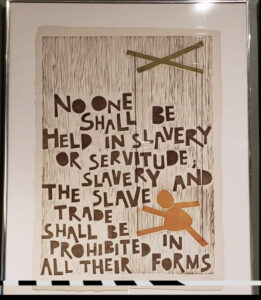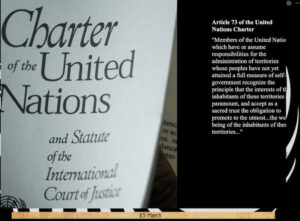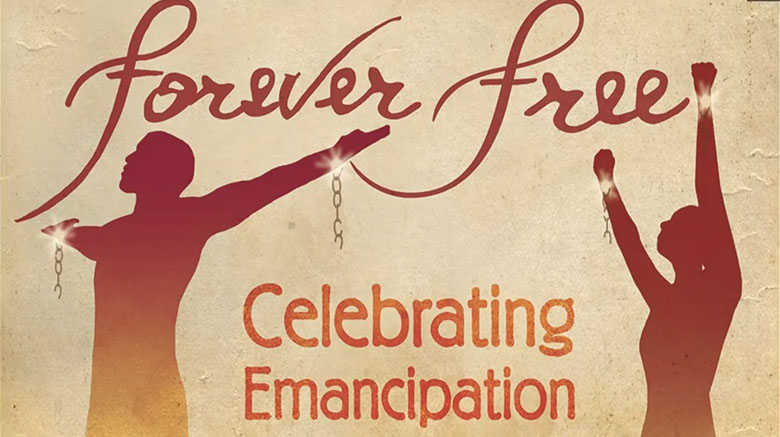The St. Joseph’s College Global Studies program took a virtual tour of the United Nations Headquarters in Manhattan last month.
Papa Dembele, a public information assistant at the United Nations, and Jonathan H. Mishal, a United Nations tour guide, led the virtual “Black History Tour” on March 30.
The tour followed the United Nations in Africa, discussing people of African decent who are part of the UN and other relevant issues, including the transatlantic slave trade, the events leading up to the UN adopting its first human rights laws and the process of African countries joining the UN. Throughout the tour, SJC students posed questions about the UN’s role in history and current events.
Lena Grasso, administrative assistant in SJC’s associate dean and Global Studies offices; Linda Lubranski, coordinator of Global Studies and the director of academic engagement; and Thomas Petriano, Ph.D., professor and chair of religious studies, organized the tour. It was a virtual tour due to the COVID-19 pandemic; in years past, SJC students toured the UN building in person.
Mishal showed the SJC students a color-coded map of the world in 1945 — when the UN first formed — highlighting the countries that were members of the UN. Many African countries at the time were non-self-governing territories under colonial rule, and therefore not yet members of the UN.
“Most people in Africa were not in control of their own political future,” Mishal explained. “A lot of the work to change this situation was done with the assistance of Mr. Ralph Bunche.”
 Ralph Bunche broke barriers for African Americans: he was the first African American to receive a Ph.D. from Harvard in political science, and as a longtime UN member, he helped write the guidelines for UN member states to withdraw from former colonies and assist the UN with helping communities and societies gain their independence. He was the first African American to receive a Nobel Peace Prize, for his work at the UN.
Ralph Bunche broke barriers for African Americans: he was the first African American to receive a Ph.D. from Harvard in political science, and as a longtime UN member, he helped write the guidelines for UN member states to withdraw from former colonies and assist the UN with helping communities and societies gain their independence. He was the first African American to receive a Nobel Peace Prize, for his work at the UN.
“Part of the dedication of the United Nations as an organization, already in its foundation in 1945, was to ensure the freedom of people everywhere,” Mishal said. “So already in 1945, the member states realized that governing another area in the world — let’s say a European country that has a territory in Africa that it’s governing — is not something that can really work anymore, post World War II.
“It had to change,” he continued. “This is something that is already dedicated in the charter; the commitment of the member states freedom to all people. It’s described a few times in the first chapter of the United Nations charter.”

